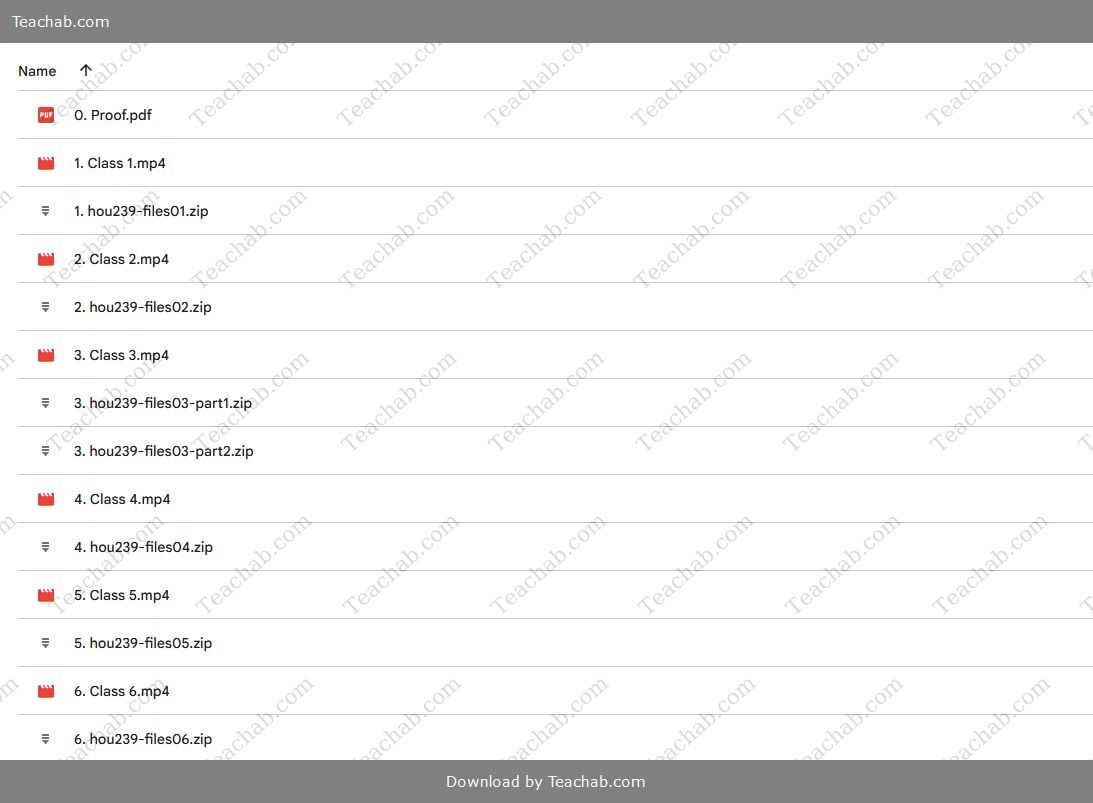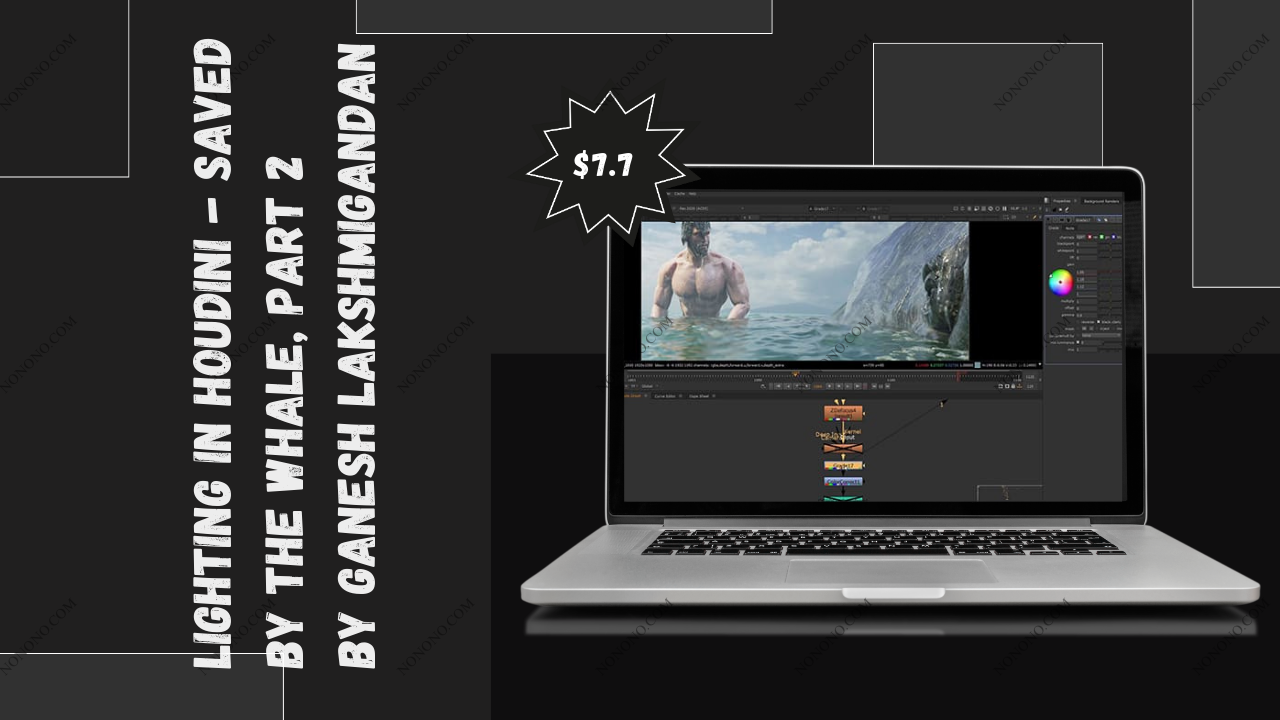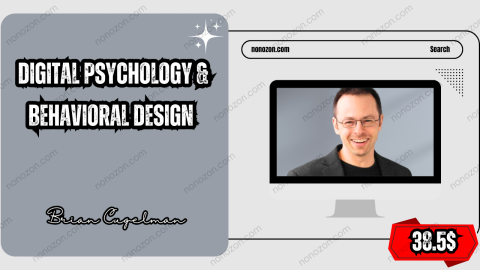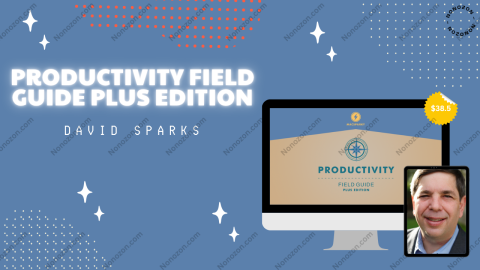Lighting in Houdini - Saved by the Whale, Part 2
by Ganesh Lakshmigandan
Lighting in Houdini - Saved by the Whale, Part 2 by Ganesh Lakshmigandan For Digital Download!
Check Proof of Content here:

Lighting in Houdini – Saved by the Whale, Part 2 by Ganesh Lakshmigandan: A Professional Review
As the VFX industry pushes the boundaries of visual storytelling, the demand for technically proficient and creatively agile artists continues to grow. “Lighting in Houdini – Saved by the Whale, Part 2”, taught by veteran FX artist Ganesh Lakshmigandan, delivers a masterclass in advanced lighting, look development, and compositing using Houdini’s Solaris and Karma XPU. This follow-up to the earlier “HO238” course picks up the baton with a focus on polish, realism, and production-ready results.
Designed for artists with foundational knowledge, this workshop bridges the gap between intermediate and advanced workflows, providing practical tools and techniques that align closely with industry standards.
Course Structure and Curriculum Breakdown
Ganesh’s teaching is methodically organized, with each class targeting a distinct phase of the VFX pipeline. This modular structure promotes both technical clarity and creative control as participants progress toward final delivery.
🔧 Surfacing Fixes & Asset Assembly
The course begins with surfacing adjustments for ocean and simulation assets. Excluding the ocean initially allows artists to focus on assembling assets within Solaris, Houdini’s USD-based layout and lighting context. This step lays the groundwork for an organized and flexible lighting environment.
🌊 Ocean Spectrum and Masking
Next, learners dive into ocean spectrum setup and advanced masking. These techniques ensure seamless visual blending between bulk simulations and ocean surfaces, forming the base for photorealistic interaction between animated and environmental elements.
💡 Lighting and Shading, Parts 1 & 2
The heart of the workshop, these sessions explore lighting schemes and shader development for creatures and FX elements. Artists use Solaris and Karma XPU to refine lighting aesthetics and match shot continuity, while understanding the relationship between look development and narrative tone.
🎛 Render Passes and AOVs
Ganesh introduces the setup of AOVs and render passes, a critical skill in professional VFX workflows. By organizing creature, FX, and environmental passes separately, students gain control over every compositing component—a must for scalable, high-quality results.
🎬 Compositing in Nuke
The final section brings everything together in Nuke, where rendered layers are enhanced with underwater effects, god rays, caustics, and water transitions. This phase emphasizes the narrative power of light and depth, turning raw renders into cinematic moments.
Tools in Focus: Solaris and Karma XPU
The workshop showcases Solaris and Karma XPU as essential tools for modern VFX production. Participants gain hands-on experience with:
Solaris: Efficient USD-based scene layout and look development
Karma XPU: Fast CPU/GPU hybrid rendering for production-quality lighting
📊 Quick Comparison of Key Features
| Feature | Solaris | Karma XPU | Traditional Tools |
|---|---|---|---|
| Scene Assembly | Excellent (USD-native) | N/A | Varies (Maya/Clarisse/etc.) |
| Shader Flexibility | High (MaterialX support) | High | Moderate |
| GPU Rendering | Limited by hardware | Yes | Yes |
| Look Development | Scene-wide control | Integrated | Tool-dependent |
Ganesh ensures that students don’t just use these tools—they understand their strengths and limitations, making them capable of adapting to diverse production pipelines.

Industry Insights from Ganesh Lakshmigandan
With credits on blockbusters like Dune and Avatar: The Way of Water, Ganesh brings a real-world sensibility to every lesson. His approach emphasizes:
Studio-ready practices over abstract theory
Realistic problem-solving for multi-pass rendering
The importance of collaboration, naming conventions, and pipeline etiquette
This direct-from-the-industry approach offers students a rare window into professional VFX standards, equipping them for success in team-based, deadline-driven environments.
Who Is This Course For?
Whether you're an aspiring artist looking to break into lighting or a working professional refining your skills, this workshop delivers tremendous value. Ideal candidates include:
Intermediate Houdini users familiar with HO238
Lighting artists transitioning to Solaris/Karma
Compositors seeking better integration with 3D render passes
FX artists learning to light and render their own work
Key Benefits of the Workshop
✅ Hands-On Skill Development
Participants leave with practical experience in surfacing, lighting, rendering, and compositing—essential for full-shot ownership.
✅ Industry Alignment
Lessons reflect real-world studio workflows, making the transition into production roles smoother.
✅ Portfolio-Ready Output
Final comps serve as high-impact portfolio pieces, showcasing participants' mastery of underwater effects and creature lighting.
✅ Creative Confidence
By focusing on both artistry and technique, the course encourages experimentation and problem-solving.
Conclusion: A Must-Take Course for Lighting in Houdini
“Lighting in Houdini – Saved by the Whale, Part 2” is more than just a software tutorial—it’s a career development opportunity. Ganesh Lakshmigandan provides a rare combination of technical precision, creative inspiration, and production realism, making this workshop essential for anyone serious about lighting and compositing in Houdini.
Through this course, participants will not only master new tools—they’ll learn to think like visual effects professionals, capable of crafting compelling images that resonate on screen.




